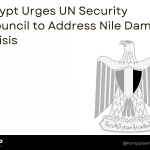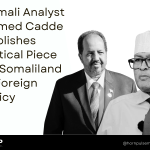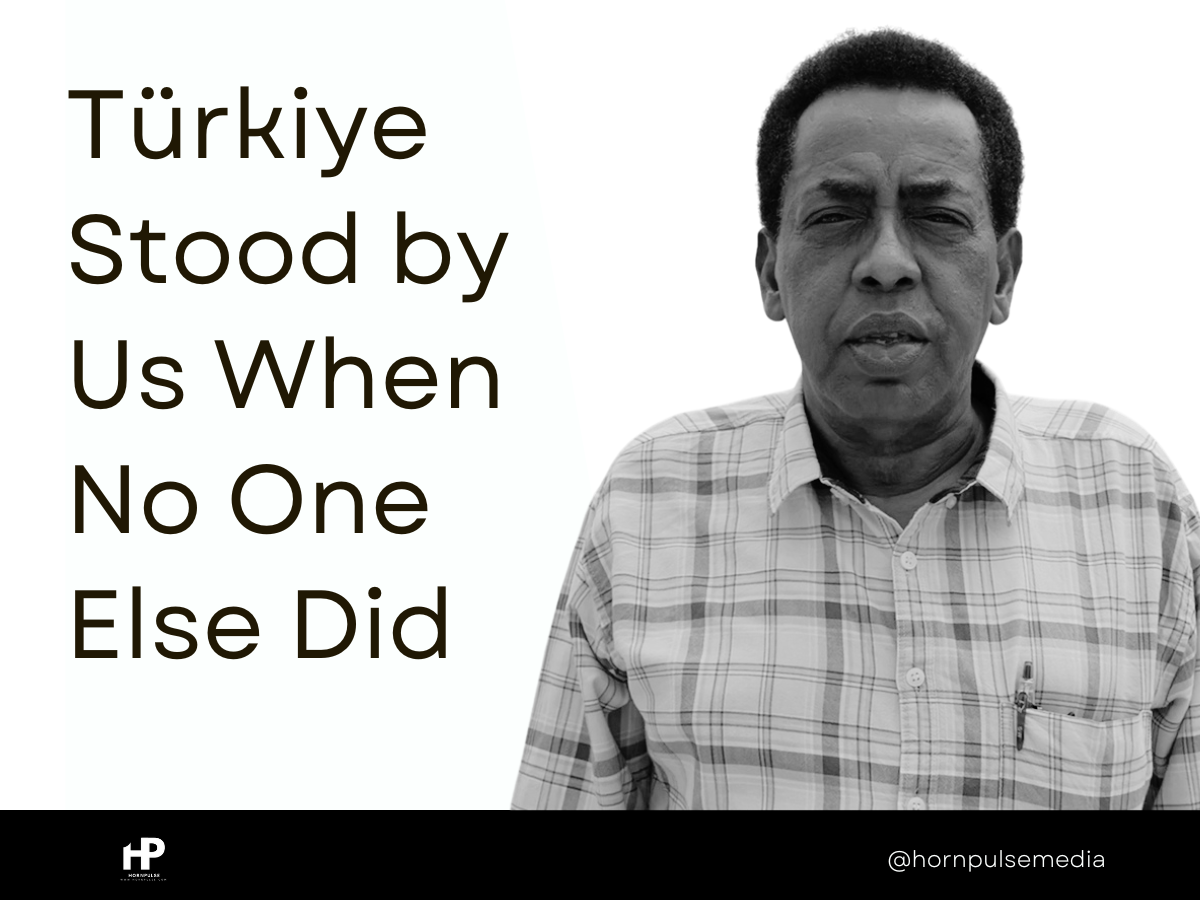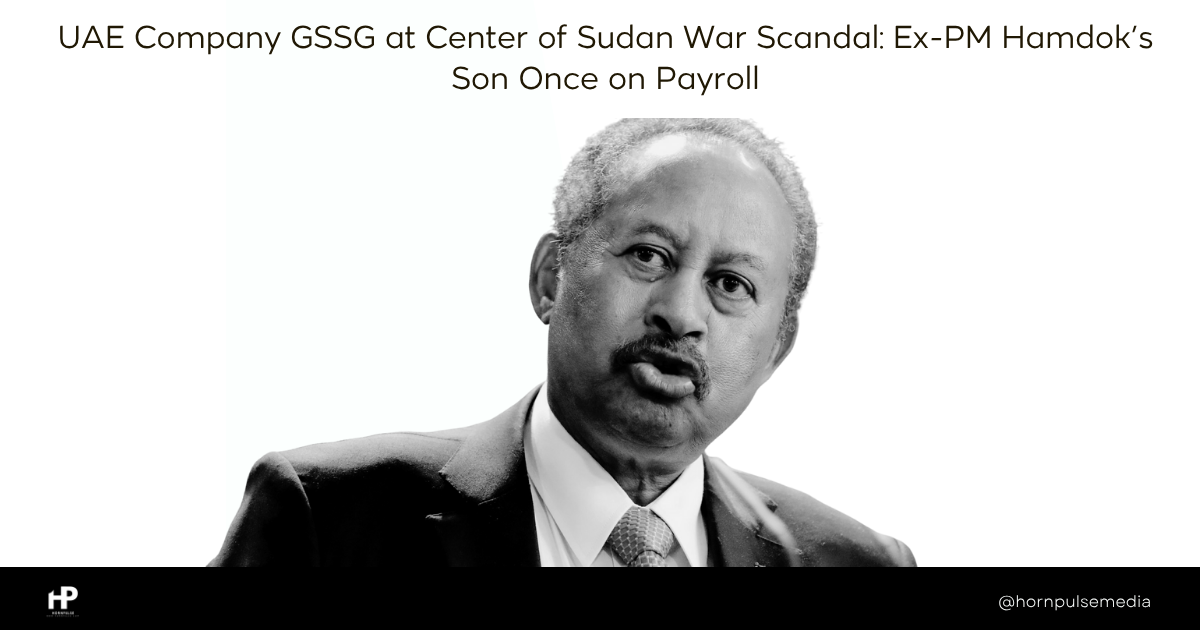
Egypt Urges UN Security Council to Address Nile Dam Crisis
September 9, 2025
Somali Analyst Ahmed Cadde Publishes Critical Piece on Somaliland in Foreign Policy
September 10, 2025MOGADISHU (AA) – GÖKHAN KAVAK / AHMED SATTI – Somali academic Prof. Dr. Yahya Amir said that before Turkey’s arrival in his country, Somalis felt like an only child without parents. “After Turkey came, we at least felt that we had a brother who thought like us and wanted Somalia to grow and become stronger,” he said.
Prof. Amir, who specializes in Somali history, spoke to Anadolu Agency about the situation in his country, Turkey-Somalia relations, and developments in Africa.
Having served as a presidential adviser, a member of the Central Bank’s board, and having worked at the World Bank and various universities around the world, Amir emphasized that Somalia has many enemies and only a few friends. “When an external problem arises, the Somali people unite. But inside, there are conflicts driven by both internal and external influences,” he said.
Amir noted that Mogadishu is safe today but pointed out “problems fueled within the government and by some countries.” He added, “Our relations with neighbors are not good. We are members of the Arab League, but we get nothing positive from there. Countries like the UAE are undermining our situation. Ethiopia as well wants to break up the country.”
“Turkey invested in Somalia despite all risks”
“Before Turkey came, we were like an only child without parents,” Amir said, continuing:
“After Turkey came, we felt we had a brother who thought like us and wanted Somalia to develop and grow stronger. Many countries claim they want Somalia to develop, but in reality, they do not — they want to keep us down. But Turkey invested in Somalia despite all risks; they trained our soldiers.”
As a university professor, Amir stressed that education was his top priority. He underlined that while politicians in Somalia change and other countries alter their policies, Turkey has never changed its policy toward Somalia.
“Turkey’s policy is consistent; they always want to help the Somali people. That’s why, whether you ask the opposition or the government, people in the market, students, or businesspeople, everyone will tell you: ‘Our only brother is Turkey.’ Because Turkey is the only country that decided to share our risks and hardships,” he said.
“Turkey is a partner in this development”
Amir noted that some countries present themselves as “donors,” but their aid and investments always come with conditions. “Turkey, however, makes its contributions as part of Somalia’s development. Turkey is truly a partner in this development,” he said.
He recalled what a British man told him 20 years ago: “You are the victims of your own resources.”
“At the time it seemed strange to me, but today I feel this country is indeed a victim of its resources. We have very valuable natural resources. Some do not want us to use our oil, minerals, or seas. Because if we did, we would develop and become one of Africa’s leading countries. They don’t want that — except for Turkey. Turkey acts with a win-win approach.”
Amir acknowledged that, like every country, Somalia has individuals who think only of their own interests and ignore the people. But he stressed again the importance of natural resources.
“Colonialism is at the root of global problems”
Amir argued that the roots of problems not only in Africa but globally lie in colonialism. He pointed out that Britain divided Somalia into five parts, and similarly partitioned Pakistan, Palestine, Yemen, and Sudan.
“Behind today’s border issues are always those former colonialists,” he said. “In 1960 they told us, ‘You are independent.’ But in reality, we were not. The judges in the courts were Italians, the head of the Central Bank was Italian, the head of accounting was Italian. They controlled the money. Today they may not be physically here, but they still control us through the system. Even in banking, through SWIFT transfers, if they see you are rising, they can cause problems.”
“We are still not a fully independent nation”
“We are still not a fully independent nation,” Amir said, expressing hope that the new generation will see the world, understand realities, return, and bring change.
He emphasized that Africa must solve its own problems:
“You cannot cure an illness without diagnosing it first. Africa now knows its illness. It must unite, manage its resources and power itself.”
Amir stressed that African leaders must prioritize their own people:
“They should not try to please other countries’ leaders but their own people. For example, I have been to Nigeria, to Lagos. There is incredible potential. One in every five Africans is Nigerian. They have human capital, educated people, oil, minerals — everything. But when you go to Lagos, it looks like a very poor country. The problem is only governance. Governance must be fixed. We must make our own decisions about our resources and our future.
I hope change will continue in Somalia too. The first hand that lifted us up, the first to say ‘develop’ was Turkey. I thank the Turkish government and people; they treated us like brothers during these difficult days. Now, slowly, the situation is improving.”


